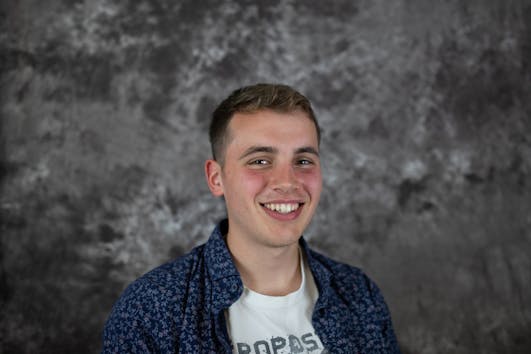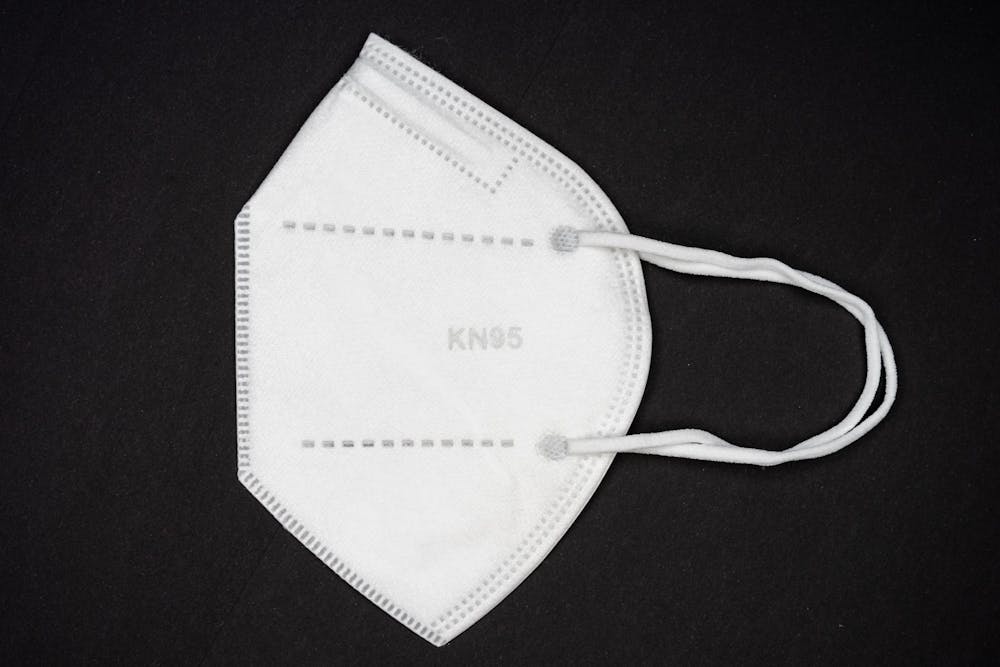UB’s campus governance organizations and unions passed a resolution addressed to President Satish Tripathi on Jan. 26 calling on UB to “provide a N95, KF94 and/or KN95 mask to each of its employees” and make said masks available to the university community “for no cost/nominal cost.”
Tripathi received the resolution, but “the university does not have plans to purchase and distribute masks to the campus community,” John DellaContrada, a university spokesperson, said in an email to The Spectrum. DellaContrada simultaneously acknowledged that “N95, KF94 and KN95 masks are ideal.”
Leaders from both UB chapters of United University Professions, the Civil Service Employees Association, the Graduate Student Employees Union, the Faculty Staff Senate and the Professional Staff Senate all signed the resolution. The Undergraduate Student Association will also support the resolution, Will Eaton, the SA chief of staff, said in an email to The Spectrum Monday. The SA’s support comes nearly two weeks after Kathleen Kielar, the vice president for professionals of the Buffalo Center Chapter of UUP, said she had reached out to SA President Nick Singh regarding the resolution but had not heard back.
“We know that [the] omicron [variant] is extremely contagious, and that the virus has mutated to a point that cloth masks no longer will protect you [as well],” Kielar said. “I just don’t understand how you can start up the semester with the omicron variant going on and not even have mask distribution.”
Kielar has several suggestions for how the university could widely distribute high-quality masks, ranging from rationing out the masks FEMA provides to UB’s medical and dental schools — which would come at “zero cost to the university,” Kielar said — to stocking on-campus vending machines with affordable masks. (KN95 masks are available at a vending machine in the Student Union, but a single mask, plus four anti-bacterial wipes, costs $7.)
“And they [UB] do have funds,” Kielar said. “We know that they got federal funds just for this. They have the ability to purchase these masks, which aren’t cheap, and they have the ability to widely distribute them across all of our campuses. To me, it is such a no-brainer.”
UB received $68.4 million in federal relief funds during the 2020-21 fiscal year, according to the university’s Annual Operating Budget Report. Of that sum, $12.1 million is earmarked for “continuing COVID-19 impacts,” but is otherwise unallocated. To date, the university has spent $10.2 million on “technology to provide remote instruction, cleaning supplies, testing and PPE.”
But university allocation of N95, KF94 and KN95 masks would be a “waste of resources,” Dr. Thomas Russo, chief of the Division of Infectious Diseases in the UB Department of Medicine and a member of the university’s Health Guidelines Committee, said.
“Masks are a very personal thing,” Russo said. “You have to find that mask that fits you best, that you're comfortable with. So, going ahead and doing a one-size-fits-all plan? I think it's fraught with danger.”
Russo said that he used N95 masks regularly for hospital work before the pandemic but started looking for a more comfortable mask, eventually settling on the KF94.
“Just buy a small quantity [of each kind of mask], and figure out what fits well,” he said, adding that UB community members should be wary of counterfeit masks that don’t meet the same standards.
Russo also said that wearing a cloth or surgical mask over a disposable mask, while “not ideal,” is a suitable alternative for those who don’t find any high-efficiency masks to be comfortable or accessible.
Nevertheless, UUP supplied faculty and staff at UB with approximately 6,000 masks last month, with 3,500 N95 masks coming from NYS UUP and 2,500 KN95 masks coming from the Buffalo Center Chapter.
“Demand was so great, that all the masks were gone within 3 hours, demonstrating that the campus community recognizes the need for these masks, and that there is a significant demand across the UB campuses,” a Feb. 2 UUP Buffalo Center Chapter press release reads.
Even Environment, Health and Safety — the university department responsible for managing health and safety concerns on campus — came to UUP for masks, Kielar said. But she doesn’t think UUP alone can meet campus needs.
“We have about 3,000 members in our chapter,” Kielar said. “We tried to distribute as many masks as we could, as widely as we could. However, we know that you’ve got close to 30,000 students, and another 6,000 employees are CSEA faculty and staff. So this is just a drop in the bucket.”
The closure of North Campus’ CVS in January has further limited access to quality masks, she said.
“There’s no pharmaceutical needs being met on the North Campus,” Kielar said. “It’s unfortunate that the university has not stepped up in any meaningful way to bridge that gap.”
Campus Dining and Shops told The Spectrum earlier this month that it was planning to stock The Elli with additional health items to fill the gap left by CVS.
But Russo didn’t think that CVS’ closure would inhibit any student’s ability to get a high-quality mask.
“I haven’t left my house to get my masks,” Russo said. “Who goes to the drug store? We got Amazon and delivery sites. So no, that pharmacy’s closing makes no difference at all.”
DellaContrada did not respond to a question and follow-up from The Spectrum regarding the university’s response to CVS’ closure as it pertained to masks, but he did point UB community members to other sources of high-quality masks, including from Residence Life employees.
“High-quality masks are readily available throughout the WNY community or online from trusted retailers, pharmacies and grocery stores,” DellaContrada said. “As well, the Biden administration recently announced it is making 400 million N95 masks freely available at pharmacies and retailers across the country — starting this week at many locations.”
The resolution is the latest debate in long-standing tensions between UB’s unions and administration.
UB has 155 cases of COVID-19 and a 2.59% positivity-rate based on a 14-day rolling average as of Tuesday, Feb. 15, according to SUNY’s COVID-19 dashboard.
Jenna Quinn contributed reporting to this story.
Grant Ashley is a senior news/features editor and can be reached at grant.ashley@ubspectrum.com

Grant Ashley is the editor in chief of The Spectrum. He's also reported for NPR, WBFO, WIVB and The Buffalo News. He enjoys taking long bike rides, baking with his parents’ ingredients and recreating Bob Ross paintings in crayon. He can be found on the platform formerly known as Twitter at @Grantrashley.





